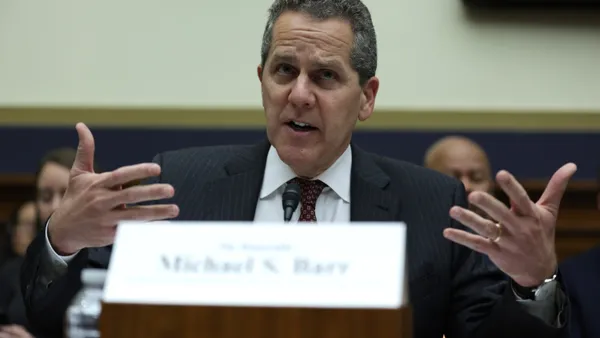Over the last few decades, SMS marketing has been gaining significant popularity as compared to other channels of communication. It can be attributed to a number of factors, including the diminishing level of engagement that email receives and most recently, the pandemic that has accelerated the movement toward digitization and mobile marketing.
In comparison to emails, SMS has astounding metrics, high open rates, click-through rates and customers are generally more keen to respond to promos via SMS; intriguing, isn't it? A number of businesses in the financial sector, telecommunications, insurance, etc. have modified their marketing strategies to include SMS campaigns. However, the marketing initiative does not come without a cautionary clause, regardless of its apparent promise. Enter compliance and regulations for business text messages.
In general, text messaging between friends and family is not subject to any particular laws, but businesses do not have the same privilege. Essentially, these compliance laws exist to ensure that people's right to privacy is protected because an individual's inbox is regarded as private property. Prior to these laws, companies were able to take advantage of this channel and unfortunately, some ended up spamming people. It is important for businesses to realize that despite their stringency, these laws also serve to protect them. Marketing activities conducted by businesses with respect for, and consideration for, their customers' inboxes are perceived as less spammy and capable of gaining trust over time.
What exactly is an SMS regulation?
Consent is the most important aspect of SMS compliance laws. However, consent is only one aspect of the issue; protecting customer information is also a major consideration. But it is important to note that SMS regulations differ from country to country. The United States, United Kingdom, Canada, Australia and European Union member states regulate the sending of text messages differently. For instance, under the Telephone Consumer Protection Act (a U.S. regulation), you must obtain written consent from consumers prior to texting them marketing messages. You can incur fines up to $1,500 per incident if you send texts to consumers who did not give their consent.
In contrast to the TCPA but based on similar principles is the Canadian CASL law, and in Europe is the EU's GDPR. Furthermore, as you analyze each industry, you will find that there are many other laws that are crucial in conducting business. In the financial industry, for example, passing SOC2 and PIPEDA audits is critical due to the accessible volume of customer information. Some of these compliance regulations concentrate primarily on privacy concerns for customers and anti-spam measures, whereas others address the management of customer data.
A basic requirement of text messaging compliance is to ensure that customers provide written consent to be contacted, which is usually achieved by completing online forms with a confirmation message which states that the customer has given their consent to be contacted via text message. It is also necessary to take into consideration the age of consent, the location of the customer in order to ensure that the text messages are sent in compliance with applicable regulations and the type of language used in the message. Each text message you send to customers must contain a link allowing them to choose not to receive future messages. All of these components can easily make SMS marketing a complex process for businesses that wish to take advantage of its benefits.
Having to follow these guidelines has left some organizations feeling as though they are walking on eggshells when it comes to text-based solicitation. That is understandable given the severity of these laws. For example, in 2020, the FCC (Federal Communications Commission) proposed a $225 million fine against a group of individuals who made robocalls to consumers on the federal Do Not Call List and for contacting wireless consumers without their consent. Until now, this is the highest fine imposed under the TCPA by the FCC. In spite of these restrictions, there is still a way for companies to make use of SMS marketing in confidence without violating these rules.
How companies can ensure compliance with SMS laws and regulations
The complex nature of operating as a compliant business undertaking SMS marketing led to the creation of an innovative SMS platform that enables businesses to achieve this. SMS marketing platforms, such as Statflo, serve many industries, including financial services, telecommunications and insurance. While each of these industries is distinct in its operations and methods of conducting business, they are all subject to the same regulations regarding business texting and other common texting etiquette. Statflo was successful in identifying and focusing on the specific differences in SMS marketing laws and regulations by industries and developed a business texting platform that allows organizations to stay compliant when sending messages to customers.
Statflo differs from other SMS platforms on the market for several reasons, including the fact that it is the only one to be fully compliant. Companies who have integrated this software into their CRM systems, have one less thing to worry about, since failure to comply with these rules may have serious consequences.
As a safeguard against spam, Statflo's built-in compliance measures will also flag salesy language and words that may be interpreted as offensive, spam or discriminatory. In some cases, words such as 'free', 'urgent', 'giveaway' and 'contest' can trigger spam filters, which result in the recipient blocking the sender. To avoid spam filters, you should send text messages that add value to your recipient rather than making a direct sales pitch.
Final thoughts
It is evident that utilizing text messaging for customer outreach does not come without its own concerns and retailers must take legal compliance and data security into account when implementing text-based customer outreach programs. The creation of a compliance team is one way to accomplish this, or even better, utilizing available software programs that can automate this process.
To learn about Statflo's SMS compliance measures, click here to access our comprehensive white paper.










